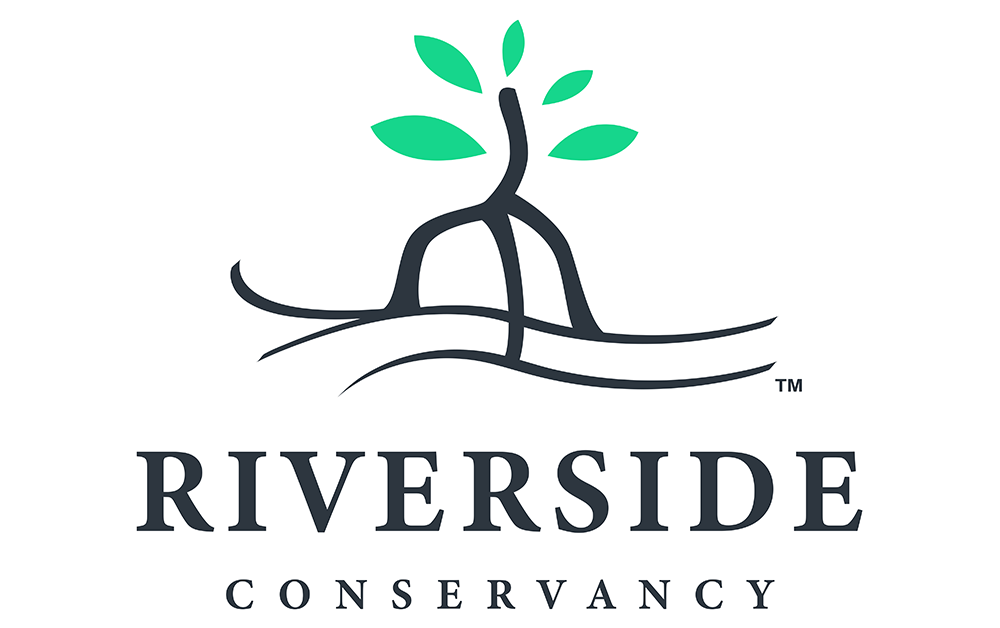Oceans of Hope members explaining how a kayak stabilizer attaches to the back of their kayaks, which helps to prevent the user from tipping over in the water.
By Lisa D. Mickey
Oceans of Hope visited Riverside Conservancy in late February to provide valuable feedback about making its shoreline location accessible for individuals with special needs.
Rick Rettinger, a U.S. Navy veteran whose legs have been paralyzed for nearly 11 years, offered suggestions about options for Riverside’s new ADA kayak lift, designed to lower kayakers from a raised platform to the water, which was funded by a grant from Volusia ECHO.
Using Rettinger’s on-site feedback, Oceans of Hope co-Executive Director Chris Story, along with Oceans of Hope volunteers John Bromley and Susan Engelman, Riverside Conservancy Program Manager Sarah Gaudreault and Facilities Manager Chris Cuchetti, along with Riverside board chair and co-founder Dr. Art Litowitz, all huddled to discuss the site’s best access options for those with physical challenges.
“I’m pumped to go,” said Rettinger, originally from central Pennsylvania and now a resident of Edgewater, Fla. “Just being in the water, that’s my happy place.”
Rettinger served in the U.S. Navy for just under five years. He later moved to Wilmington, Dela., with his wife Dottie, and worked in IBM deskside services, before the couple moved to Edgewater in 2020.
Rettinger experienced inexplicable paralysis in his legs and was diagnosed with transverse myelitis. It is an inflammatory disorder of the spinal cord that damages the insulating material (myelin) covering nerve fibers and disrupts transmission of nerve signals, leading to various neurological symptoms. While both of his legs are paralyzed, he has use of his arms and upper body.
“Basically, I have a lesion on my spinal cord,” said Rettinger, who served in Guam and Okinawa in the 1980s. “It’s possibly environmental. I got out of the Navy and thought I was fine with everything.”
Following his sudden paralysis, Rettinger went to a Veterans Administration hospital to learn how to function with his new mobility needs. While there, he watched a quadriplegic veteran receive a treatment in which electrodes made his legs move.
“I was crying like a baby and asking them to put me in that harness because I also wanted my legs to move,” he said.
When the veteran came down from the apparatus that moved his legs, his wife held the man’s tracheotomy so he could utter two words to Rettinger: “One arm.” His message was, if he only had use of one arm, he could brush his teeth and comb his hair. The man could only move his head.
“Talk about a gut check!” said Rettinger. “He was saying, ‘You don’t want to be me. I want to be you.’ I was mad at the world for the first year or so, but from that day forward, I decided that nothing was going to stop me.”
Rettinger still remembers easier times before the paralysis. He and his wife moved to be closer to the water, where he could fish. He participated in the White Marlin Open in Ocean City, Md., billed as the “world’s largest and richest billfish tournament.”
“I’ve caught marlin, blue fish and white marlin,” he said. “I try to be an outdoorsman as much as I can. On the water, I find it to be peaceful, just serene.”
And he hopes to someday return to the water in his own fishing kayak to reclaim that feeling in spite of his paralysis.
Rettinger is not one to shy away from challenges. Even after his paralysis, he has been skydiving, admitting that his greatest concern was reuniting with his wheelchair.
“I looked out of the plane and thought, ‘I know my chair is down there somewhere,’” he said with a laugh. “But this is how I move. If you put me on the ground and take my chair away, I’m like a fish out of water.”
Rettinger became active with Oceans of Hope in 2021. He signed up for the group’s adaptive surfing event and then learned about its kayaking program.
“I had no expectations going into it,” he said. “I learned about it and was willing to try both kayaking and surfing.”
The Oceans of Hope Foundation is a non-profit organization established to offer individuals with limited mobility and spinal cord injuries the opportunity to get into ocean water and surf on adaptive surfboards. Trained volunteers in the organization’s adaptive kayaking program also are able to use specially designed and equipped kayaks that enable program participants to explore such bodies of water as the Indian River Lagoon. The program is called “ocean and water sports without boundaries” by its participants.
Rettinger has explored getting his own adaptive fishing kayak. He longs for the day when he can get on the water and throw out his line.
“It’s just one more activity that I can do,” he said.
And working with Riverside Conservancy and Oceans of Hope, as well as Marine Discovery Center -- where Oceans of Hope’s water sports program is now based -- Rettinger hopes access for individuals with special needs can become more widespread and efficient with a few tweaks to both equipment and shoreline entry points. Riverside Conservancy hopes to become one of those spots in Edgewater.
“There are some Oceans of Hope participants who are high level on the autism scale, so anything different might make them really uncomfortable,” Rettinger said. “We have a blind surfer who stands, so he has his own needs and we have a guy with one leg. Every type of injury or condition has different challenges, but really, there are no problems, just challenges.”
Anyone who wants to try out the Conservancy’s kayak lift may email Kelli McGee at kelli@riversideconservancy.org. Appointments are made on a case-by-case basis and are available depending on tide and weather conditions. Participants must have an on-site safety orientation, be accompanied by another individual, and agree to safety protocols.

